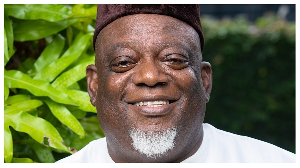The Head of the Biochemistry Department, University of Ghana, Dr. Osborne Quaye, says although Ghana has not been able to achieve the global HIV/AIDS target of 90-90-90, the progress made so far is still worth celebrating.
The global HIV/AIDS target of 90-90-90 requires that by the end of 2020, 90 per cent of people living with HIV will know their status, while 90 percent of those who know their HIV status to be positive will be on antiretroviral treatment, with 90 per cent of people on antiretroviral treatment having their viral load suppressed to an undetectable level, at which point they become un-transmittable.
Ghana has been able to achieve targets of 58-77-68, which means as much as 42 per cent of people living with HIV in the country are not aware of their status.
Dr. Quaye believes the goals achieved so far can be improved to create the necessary awareness of HIV/AIDS.
His comment comes on the back of a speech made by the Country Director of the Joint United Nations Program on HIV and AIDS (UNAIDS), Angela Trenton-Mbonde, who said, Ghana may not achieve the global 90-90-90 targets.
“Even though we are not going to achieve the 90-90-90 targets which were set for people who are infected and people who are on therapy and receiving suppression of the virus, the number we have so far suggest that some progress has been made globally.
“…as to moving the 90-90-90 to a different year, I am not too sure but we have the reason to celebrate the success that has been chalked so far,” he said.
He told UniversNews in an interview that “just looking at one strategy, in the case of people below a certain age, and refining the policy will not be enough; several things are contributing to people having HIV, and I think we have to look at them holistically and not just in isolation.”
An event to commemorate World AIDS Day was organised by UNAIDS Ghana and Verified Health, a non-governmental organisation.
On the occasion, a project aimed at reaching out to young people to ascertain their HIV status and prevent sexually transmitted infections and unplanned pregnancies was launched.
Speaking at the event, Country Director of the Joint United Nations Programme on HIV and AIDS (UNAIDS), Angela Trenton-Mbonde, noted:
“There are impediments hindering people from knowing their HIV positive status in Ghana. One example is the law requiring parental consent for adolescents younger than 18 years to access HIV testing."
“This law clearly prevents an adolescent younger than 18 from having access to HIV testing if that person does not want to talk to his or her parents about the situation,” she said.
General News of Saturday, 12 December 2020
Source: universnewsroom.com

















